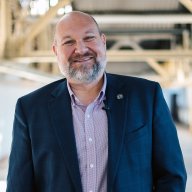
ERGO Group’s Chief Digital Officer shared insights on how the company is transforming the insurance industry with process mining
ERGO Group plans to become the leading digital insurer in their core markets by 2025. The company is using process mining to help them achieve this goal. ERGO started using process mining for claims and operations in 2021. Since then, the Germany-based, global insurance provider has expanded their use of process mining to 16 business processes, including accounts payable and procurement.
At Celosphere 2023, Mark Klein, Chief Digital Officer at ERGO Group, joined Faika Halici, Sr. Director, Customer Advocacy for Celonis, and Tom Smith, Editor-in-Chief of Acceleration Economy, to discuss the company’s current process mining efforts and future plans, including the opportunities they see for technologies like object-centric process mining, artificial intelligence and robotics.

The following is a transcript of the interview, edited for readability.
Faika Halici: Let's start out with learning a bit more about ERGO Group and your role.
Mark Klein: Well, ERGO is an insurance group, a multi-liner, so we are active in health insurance, life insurance, and P&C insurance. Our focus is on Europe, but we are also active in the growth markets in Asia, which are Thailand, India and China. We have 20 billion in premium, and over 30,000 employees. And, for sure, we are very process-heavy. And on top, we have set out to become the leading digital insurer in our core markets by 2025.
Tom Smith: Mark, to kind of set the stage for some discussion, I know ERGO group has done lots of work with Celonis around insurance industry functionality. But you talk about being process-driven, how relevant that is in insurance. I wonder if you could just start out with an overview of the work you've done with Celonis, to lay the groundwork for some more detailed discussions?
Mark Klein: Well, we started in '21 with the proof of value. Where we really looked at the technology, and we have seen there is huge potential for us. We have done two pilots, in claims and in operations, in Germany. And then we basically started to build our Competence Center. Where we said, "We want to invest into this technology. We want to roll it out over different markets and different processes."
So in 2023, this year, we have basically started with 16 processes. This includes motor claims in Thailand, in Greece, in Germany. We have worked on travel insurance, both operations and claims. And we have also looked into accounts payable and procurement.
For sure, we have expanded to the UK, to India already, and we are setting up for Poland, Austria, and Belgium.
So we believe in a very, very fast execution on that topic.
Tom Smith: Very ambitious. How many employees in the company are using Celonis?
Mark Klein: Oh, that's difficult. 16. And we have found about 10 people involved, 10 to 15 people when we have a process. So that makes it 160-190 people that are working with the tooling.
ERGO sees opportunities in object-centric process mining, new Celonis features
Tom Smith: Obviously you've gathered a lot of experience over the last couple of years with the technology. And here at Celosphere today we heard lots about new products, the Process Intelligence Graph, Process Copilot. And I just wonder if you can share some of your thinking on where those could be applicable to your business? How you could potentially benefit?
Mark Klein: Well, first of all, for us it is very important to create the transparency of an end-to-end process. And really understand it and see where can we optimize and digitize the process? Where do we bring in additional technologies, like artificial intelligence or robotics?
And the [Process Intelligence Graph] has, for me, the opportunity to really open up the boundaries, not [just] being inside the company but also looking at partners. And I strongly believe in the [object-centric] approach, that you can look, and it will say that the process is not flat. And that is fully right.
You can look at a process from different angles and for different hypotheses that you want to probe with that. And there the new technology and, I have to say, the really good-looking interface, will for sure help us to further use the technology.
Faika Halici: So, Mark, Celonis has taken a number of steps to democratize access to process mining. Think Business Miner, LLM for PQL, et cetera. How is that helping ERGO Group today? Or how can it do so in the future?
Mark Klein: Well, first of all, we have started in providing Celonis at a basic tooling to all the entities we are active in. And, for example, in the Thailand, where we looked at the claims process of motor, and that is the main of their books, so main of their business, they are using that on a frequent basis to even do the reporting and bring all the dashboards to the board.
Have we succeed to really empower all our business colleagues to use the business sphere? That has not happened yet. So they are still relying on the [expertise] of the people of our Competence Center. But I strongly believe that is a matter of time, and of, so to say, the cultural transformation. That you do even more training, and then you can better and deeper optimize your processes on the run and not in the one time effect.
Driving transformation in insurance with process mining
Tom Smith: Mark, at Celosphere last year, ERGO Group did a pretty significant announcement with Celonis around co-creation.
Mark Klein: Yes.
Tom Smith: As I understood it, adding some insurance specific functionality to the Celonis system. Can you give the viewers an update on where that stands and how it has progressed?
Mark Klein: Yes, for sure. We have basically done a pilot on the task mining that was really fresh and new last year. And we use that in order to improve our employee experience, that people have a better desktop to work on, the right applications on that, that we get rid of the interfaces that they're currently serving mostly manually. That has been really a good success, people participated into that. That worked very well.
And we have done one functional innovation. There is a function called the [Duplicate Checker App]. You do that specifically for checking if you have paid a bill twice. And we have used it to say, "Do we have already with this company a contract? Or do we have a second contract? Please check whether the conditions are rightly approved."
So it's more of a compliance check, together with our purchasing department. And we get back the likelihood that there is another contract with this supplier that might be with better conditions. And that we have implemented together with the team of Celonis, very successful.
READ: Process Mining for ERGO - Welcome to ERGOPoly
Tom Smith: Yeah, that's great to hear that you're actively doing development work. I'm curious, we heard today about some developments to the Celonis Studio. What do you think of those? How might those help you in these kinds of projects?
Mark Klein: We see specifically the opportunity to develop apps, be it in the claims process or in some other process, to serve the customer. And that can be really speed up. At the moment we are not leveraging the [Celonis Studio] right now.
Tom Smith: Oh, you're not? Okay.
Mark Klein: No.
Tom Smith: Okay, good.
Mark Klein: We are leveraging the intelligent API.
Tom Smith: I wanted to ask you about that.
Mark Klein: Yeah.
Tom Smith: I understand that's another initiative you've got in the works?
Mark Klein: Yes. And this is what we have implemented in Thailand, with the motor process. Where we basically have the opportunity that outside Celonis we can check which is the best garage where to bring the car to? And there we have developed a tooling for that, that is now fully integrated via the intelligent API with Celonis.
So our claim's handler can basically press on a button, and he gets the three garages which are close to the accident, where he can steer the car to with the best conditions and the best service for our customers. So that's really a very, very good approach.
And I'm convinced that the Intelligence API will open up the suite for external applications that we can... so integrate in the process flow.
Tom Smith: A very interesting application. Because I know when I think of an API, I think software development firms would use that. But here's an example of a really savvy customer taking advantage of it to build custom functionality, so.
Mark Klein: Yes. And you need that additional functionality in the process, and you should not rebuild it but really integrate it via an intelligent API.
Tom Smith: Great. As you look ahead into 2024, do you have a couple, two or three of your top priorities around process mining? And new initiatives or new use cases, anything of that nature?
Mark Klein: Well, we are in the midst of a really rollout. We want to have, in 2025, 55 processes active. So that means from 16 to 55, that is still a step to go.
We're looking forward to really internationalize fully, and looking at the different segments of the health business, of the P&C business, and the life business, in order to make transparent what the power of the technology is. We strongly believe that once we have implemented in one country, the second process will follow. And we already see that.
So we are right now going for an international rollout. We will have a look if we can more and more integrate via the intelligent API additional software solutions. And we will for sure have a look into large language models in AI to see whether we can integrate that in our Celonis applications.
More from Celosphere 2023
Celosphere 2023: Everything you need to know news, product and process intelligence innovation
Celonis is on a mission to make processes work for people, companies and the planet
Celonis Process Intelligence Graph provides a common language for enterprise process performance
Celonis Transformation Hub: A centralized location for quantifying process improvement value
Celonis Process Copilot: GenAI companion helps business increase process intelligence
Celonis Studio enhancements make building apps, dashboards and actions easier than ever
Celosphere hands-on Academy training hits the mark for process mining pros
Editor’s note: This video was originally published on Acceleration Economy, Celosphere 2023: How ERGO Group Uses Process Mining to Optimize Insurance Processes.



